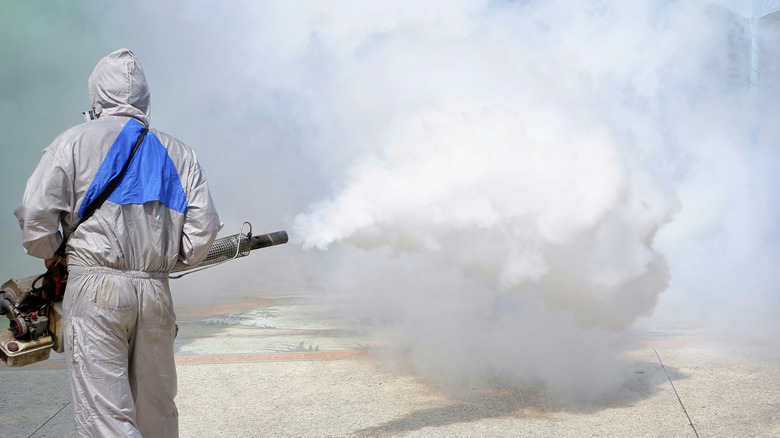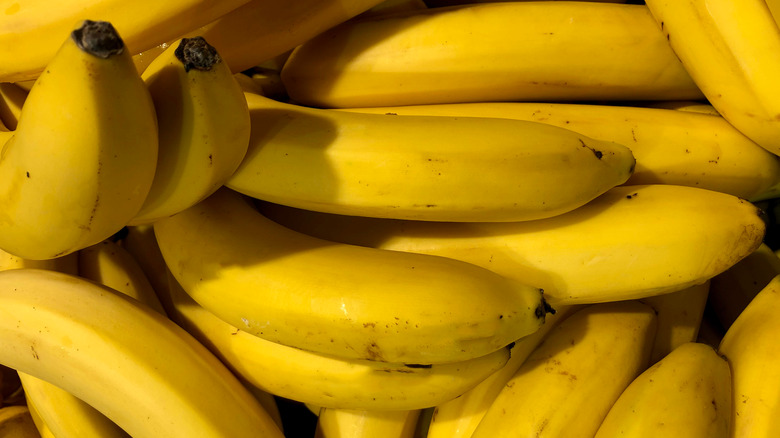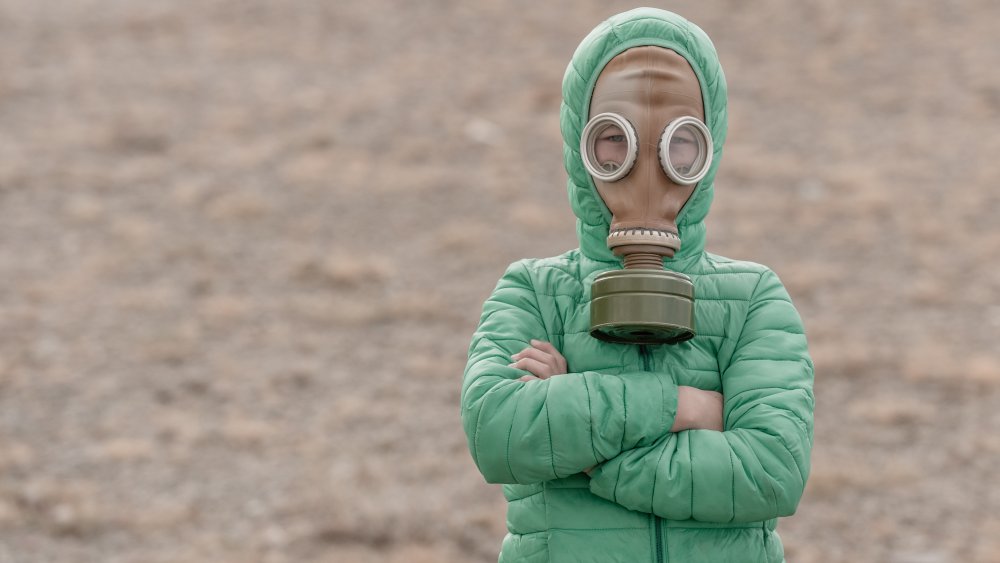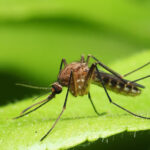
The Major Difference Between Male And Female Mosquitoes
Let’s face it – mosquitoes are nobody’s favorite creatures. And it’s not just because they’re annoying. Mosquitoes are also one of the deadliest animals on the planet. They spread everything from malaria and dengue to yellow fever and the West Nile and Zika viruses. According to Forbes, these diseases cause more deaths every year than all murders and wars combined.
So with that in mind, the question then seems obvious. Do mosquitoes play a role in the ecosystem? Or can we get rid of them all without triggering some kind of apocalyptic event?
Well, turns out we sort of could, but the truth is that not all mosquitoes are bad. Some, like the Toxorhynchites, or “elephant mosquito,” are actually good to have around because they don’t bite people and their larvae eat the larvae of other mosquitoes, including the kind that does bite humans.
If you insist on killing all mosquitoes, though, there’s a very good chance nothing will happen. A lot of animal species do feed on mosquito larvae as well as the adults, but these animals also eat many other insects, so eliminating mosquitoes would have no impact on their survival. According to Forbes, there’s some debate among scientists about the importance of mosquitoes in the Arctic, where mosquitoes are basically the only insect that survives when the ground is frozen in winter, helping feed local birds. But some scientists believe other native midges (small flies) could fill in the gap if mosquitoes suddenly disappeared.
Only female mosquitoes want your blood
Though disease transmission is the major reason humanity wants to eliminate mosquitoes, the truth is that most mosquitoes do not transmit disease. This is because only the female mosquito bites, transmitting disease in the process. Males are vegetarian, feeding only on flower nectar (per Library of Congress).
Females bite because they require the protein present in blood to produce eggs. But when they pierce the skin to suck blood, they also deposit saliva on the bite, which in turn not only causes itchiness and irritation, but it is also how diseases are transmitted, according to the Library of Congress.
Female mosquitoes also come equipped with a sort of radar that can find their victims based on the odor, temperature and carbon dioxide they produce. And because we don’t all produce the same amount or have the same combination of chemicals on our skin, it makes sense some humans are just more attractive to mosquitoes than others. In fact, researchers believe some people just “smell bad” to mosquitoes while others produce a sweeter smell that calls mosquitoes from far away (via LOC).
Entomologists (insect experts) also point out that mosquitoes are more attracted to certain blood types (especially type O), pregnant women, and overweight or obese people, as reported by Time. Lactic acid, produced in your muscles when you exercise, is also appealing to female mosquitoes, and so is the smell of alcohol on your skin. So if you’re outside having a drink or just coming back from a run, expect mosquitoes to come rushing your way.
Female mosquitoes are also special in other ways
Aside from the blood sucking, the most obvious difference between male and female mosquitoes is lifespan. Male mosquitoes live an average of just a week, while the average female lives for six weeks, but can potentially live for several months. Then there’s the flying: male mosquitoes tend to mostly stay put, usually close to the breeding site, or moving around a bit when searching for nectar. Females can travel up to 40 miles searching for blood, as this is essential to lay eggs and ensure the continuation of the species (via Vector Disease Control International).
You probably won’t be spending much time comparing mosquitoes, but there are ways to tell the males from the females. One difference is size: Females are significantly larger. According to MosquitoNix, they are also louder. The buzzing you hear when a mosquito is nearby is produced by a mosquito beating its wings at a speed of up to 500 times per second. And while the sound might be irritating to you, it’s mostly used by females to attract a mate, which means the loud mosquito buzzing you hear is likely coming from a female mosquito, as the males don’t produce such a strong buzz.
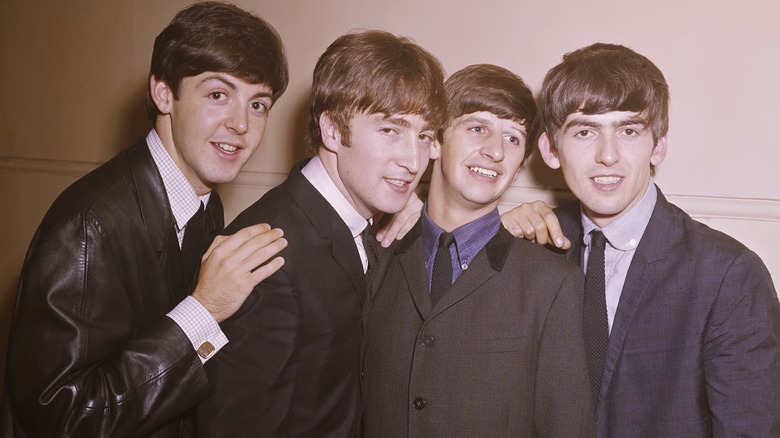
The Reason The Beatles' 1969 Concert Took Place On A Rooftop Might Surprise You

Has Anyone Had Sex In Space?

Cocaine Cowboys: How Much Willy And Sal's Empire Was Really Worth

How The Massive Ocean Discovered In Earth's Core Changes Everything

Messed Up Things That Happened After The Deepwater Horizon Oil Spill

The Tragic Death Of Anne Frank

The Untold Truth Of Tool

The Most Bizarre Thanksgiving Traditions
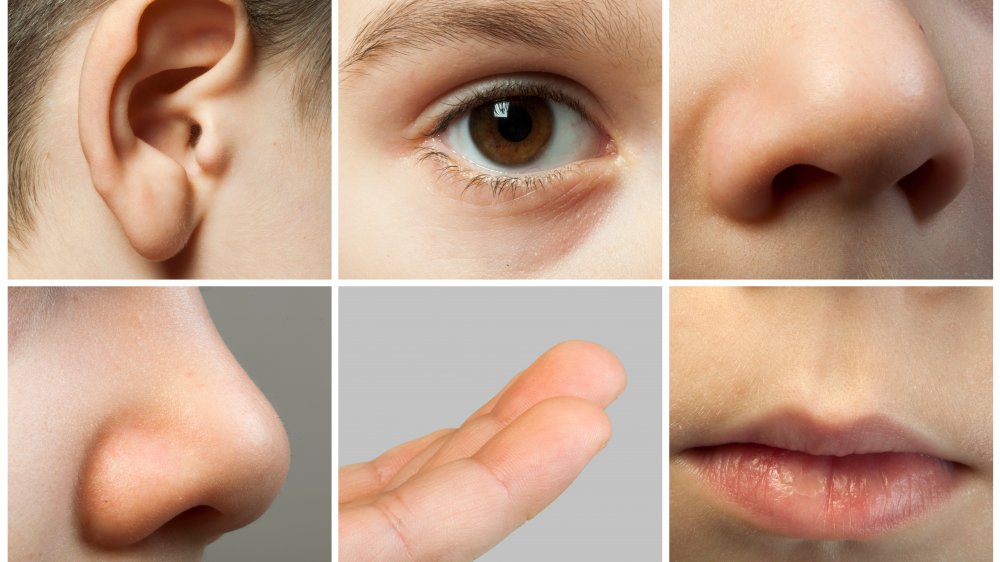
Here's Why You Don't Only Have Five Senses

The Truth About Bob Ross' Afro

